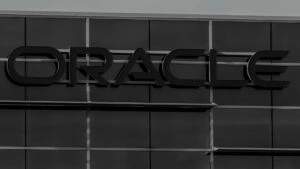Geopolitical tensions, natural disasters and pandemic-related disruptions are just some of the challenges that can affect global supply chains.
One example of this is the Covid-19 pandemic, which has led to significant production and supply bottlenecks worldwide. Natural disasters such as floods or earthquakes can also have a significant impact on production in affected regions and thus interrupt supply chains. Political unrest or trade disputes can also lead to unexpected and drastic changes in the availability of materials.
Even small and medium-sized enterprises (SMEs) are no longer immune to these global upheavals. One example of this is a small family business that specializes in the production of handmade furniture. Although this company mainly sources its raw materials locally, it was unexpectedly affected by a global timber shortage caused by increased fires in key timber supplier countries. This shortage led to delivery delays and increased costs that threatened the company’s existence. Such examples illustrate that no company, no matter how locally it operates, is safe from global developments.
More resilience thanks to ERP
This is where an ERP (Enterprise Resource Planning) system can help decisively. ERP systems can significantly improve the resilience of supply chains by providing companies with comprehensive transparency and real-time data analysis. These systems make it possible to monitor and control the entire supply process from procurement through production to delivery.
One of the main advantages of an ERP system is improved transparency. Companies gain a clear overview of their supply chains and can therefore identify bottlenecks and risks at an early stage. This enables proactive planning and rapid adaptation to changing conditions. For example, by analyzing real-time data, a company can determine that a key supplier is located in a region at risk of natural disasters and evaluate alternative suppliers in good time.
Another important aspect is real-time data analysis. ERP systems offer the possibility of processing and evaluating large volumes of data in real time. This enables companies to react quickly to changes and make informed decisions. For example, by monitoring stock levels in real time, a company can ensure that sufficient materials are always available to avoid production downtime.
Stabilization of supply flows
In addition to transparency and data analysis, ERP systems also offer a variety of other functions that can help to stabilize global supply flows. One example is supplier management, which enables companies to monitor and optimize relationships with suppliers. By evaluating the performance and reliability of suppliers, companies can build strategic partnerships and thus stabilize their supply chain.
Production planning and control is also important. This functionality enables precise planning and optimization of production processes, which can avoid bottlenecks and increase efficiency. By integrating supply chain data into production planning, companies can ensure that they can react flexibly to changes in material availability.
ERP systems also offer functions for inventory management. By optimizing stock levels, companies can avoid excess stock and the associated costs. At the same time, they can ensure that sufficient stocks are always available for production. A good example of this is the implementation of just-in-time deliveries, where materials are delivered exactly when they are needed to minimize storage costs and maximize efficiency.
A question of automation
Another important advantage of ERP systems is the possibility of automation. By automating processes such as ordering, invoicing and reporting, companies can increase efficiency and reduce errors. This also helps to stabilize supply chains, as automated processes are less prone to human error and delays.
However, implementing an ERP system can be a complex task, especially for small and medium-sized companies. This is where the support of an experienced provider can be crucial. SOU AG, for example, a company that specializes in the development and implementation of ERP software, offers tailor-made solutions for SMEs. With its extensive expertise, the company has already supported countless partners in the introduction of ERP systems and helped them to secure their supply chains and react more flexibly to changes.
By implementing an ERP system, companies can not only stabilize their supply chains, but also increase their efficiency and competitiveness in the long term.
(cm/SOU AG)






